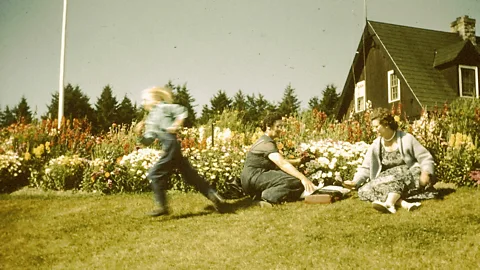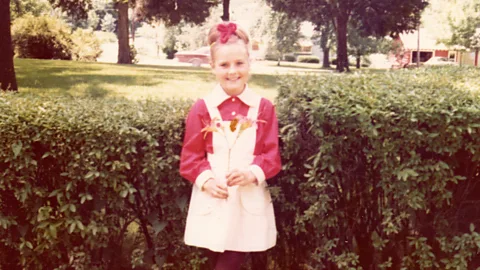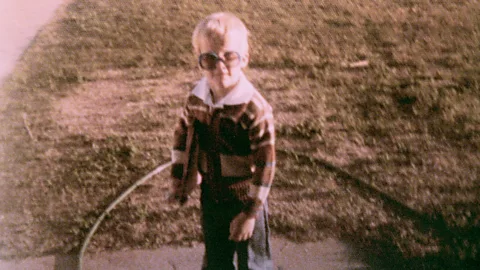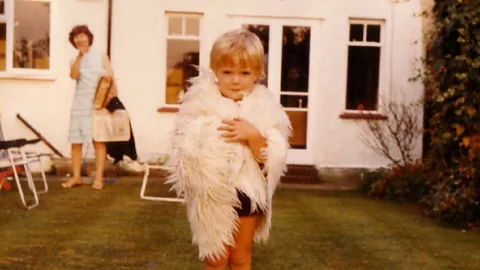Clues to your personality appeared before you could talk
 Glenn/Flickr/CC BY-SA 2.0
Glenn/Flickr/CC BY-SA 2.0Long before you could express yourself with words, you were giving away the signs of your adult temperament. Christian Jarrett explains how.
Your personality has been sculpted by many hands. Your genes, your friends, the schools you attended, plus many other factors, will all have played a part in making you the person you are today. But when exactly did your own distinct character first begin to take shape? If you’re a shy person now, for instance, does that mean you were a shy child?
In all likelihood, yes. In fact, research suggests there are significant links between our behavioural tendencies when we’re just a few months old and our later personality. That isn’t to say that our personality was set in stone that early, but that the roots of who we are can be traced all the way back to our earliest days.
Psychologists who study babies usually refer to “temperament” rather than personality and one of the first ever investigations in this area was called the New York Longitudinal Study, launched in the 1950s, for which the wife and husband team of Stella Chess and Alexander Thomas began observing 133 children from their birth up to age 30, as well as interviewing their parents. Based on their findings, these researchers proposed that there are nine different facets of infant temperament, including activity level, mood and distractibility. They also noted that scores on different facets tended to cluster and, in a sign of a less politically correct age, they described three categories: “easy children”, “difficult children” and “slow to warm up” children.
 Celeste Lindell/Flickr/CC BY 2.0
Celeste Lindell/Flickr/CC BY 2.0Do these childhood categories presage later personality types? The New York study found some evidence that children categorised as easy or difficult at age three also tended to be categorised the same way in early adulthood, but the research didn’t examine links between child temperament and adult personality, as such.
In fact, for a long time psychologists studying infant temperament and those studying adult personality didn’t have a great deal to do with each other. Increasingly over the last decade or so, however, that has begun to change and although infant temperament doesn’t completely forecast later personality, the two are certainly connected.
Note that the scoring systems for infant temperament have changed over time. Today the original nine aspects of temperament are distilled into just three broad dimensions (unfortunately psychology labs often vary in the precise they use): “Effortful control” which describes things like the infant’s self-control and ability to focus (resisting, for example, the lure of a tempting toy); “negative affectivity, which as it sounds, refers to levels of negative emotion like fear and frustration; and “extraversion” or “surgency”, which is to do with activity levels, excitement and being sociable.
Consider a Russian study published online this year in Personality and Individual Differences that involved 45 parents rating their infants’ temperament on these dimensions when they were just a few months old (seven months, on average) and then rating their children’s personalities again an average of eight years later, based on the main traits of adult personality such as extraversion and neuroticism.
 Chris Carter/Flickr/CC BY 2.0
Chris Carter/Flickr/CC BY 2.0Comparing the measures at the two time points revealed a number of consistencies, such as that infants who scored higher on the extraversion/surgency domain (they did things like smiled more) tended to score lower, at age eight, on the adult personality trait of Neuroticism (that is, they were more emotionally stable); and those infants who scored higher on this study’s equivalent of effortful control went on to score higher on aspects of the adult trait of conscientiousness when they were children. If your baby seems to have a decent attention span – good news, this probably means they’ll keep their room tidy when they’re older.
Not everything matched up in this study – for example, smiley, more outgoing babies didn’t score higher on extraversion as children – which is a reminder that our infant temperaments are not always destiny. But the results do add to what the researchers described as the “growing consensus that temperamental characteristics that appear in the first years of life form a basis for later personality.”
Amazingly, some links may even stretch across four decades. In another study, published in 2007, researchers in the Czech Republic took measures of infancy temperament a little later, between the ages of 12 and 30 months, and found an association, albeit very specific, with personality traits in the same individuals when they were tested again 40 years later.
The two traits in question were toddler disinhibition (similar to the more widely used extraversion/surgency rating) and adult extraversion. That is, the more active and assertive the participants had been as toddlers, the more likely they were to score highly on extraversion as adults, and on self-efficacy (our belief in our own abilities). If the child is the father of the man (to quote poet William Wordsworth), then the researchers said they would like to add “… toddler is a close relative”.
It’s worth ing when reading about these findings that our personalities, although they show consistency through life, are also constantly evolving and it would be impossible to pinpoint any one moment when a person’s personality in their youth had taken on its adult form (apart from anything, this would depend on which version of their maturing adult personality you had in mind). However, as an infant grows into a small child, their personality is gradually crystallising. Wait until a child is aged three, for example, and now their behaviour will even more strongly foretell the adult personality.
 Steve Greer/Flickr/ CC BY 2.0
Steve Greer/Flickr/ CC BY 2.0Take the findings from a paper published in 2003, in which researchers at the Institute of Psychiatry in London compared the behavioural scores of over a thousand three-year-olds taken in 1975-1976 (based on which they classified the children as either “well-adjusted”, “under-controlled”, “confident”, “inhibited” or “reserved”) with the same individuals’ personality scores recorded when they were 26. This time many striking consistencies emerged through the nearly three-decade period of study – to take just one example, the “confident” children became the most extraverted adults, and the inhibited children became the least extraverted.
Anyone who has young children of their own, or spends time with them, knows that it’s tempting to look for signs of emerging personality traits in a baby’s giggle or frown. The latest psychology research suggests such speculation might not be entirely in vain.
But there’s also a serious side to this field. Increasingly, researchers are realising that the roots of adult psychological problems may lie in behavioural tendencies that first appear in early childhood. By learning to recognise these signs, it might be possible to intervene carefully at an early age and to help steer children on the path to a healthier future.
--
Dr Christian Jarrett edits the British Psychological Society's Research Digest blog. His latest book is Great Myths of the Brain.
600,000+ Future fans by liking us on Facebook, or follow us on Twitter, Google+, LinkedIn and Instagram.
If you liked this story, sign up for the weekly bbc.com features newsletter, called “If You Only Read 6 Things This Week”. A handpicked selection of stories from BBC Future, Earth, Culture, Capital, Travel and Autos, delivered to your inbox every Friday.
